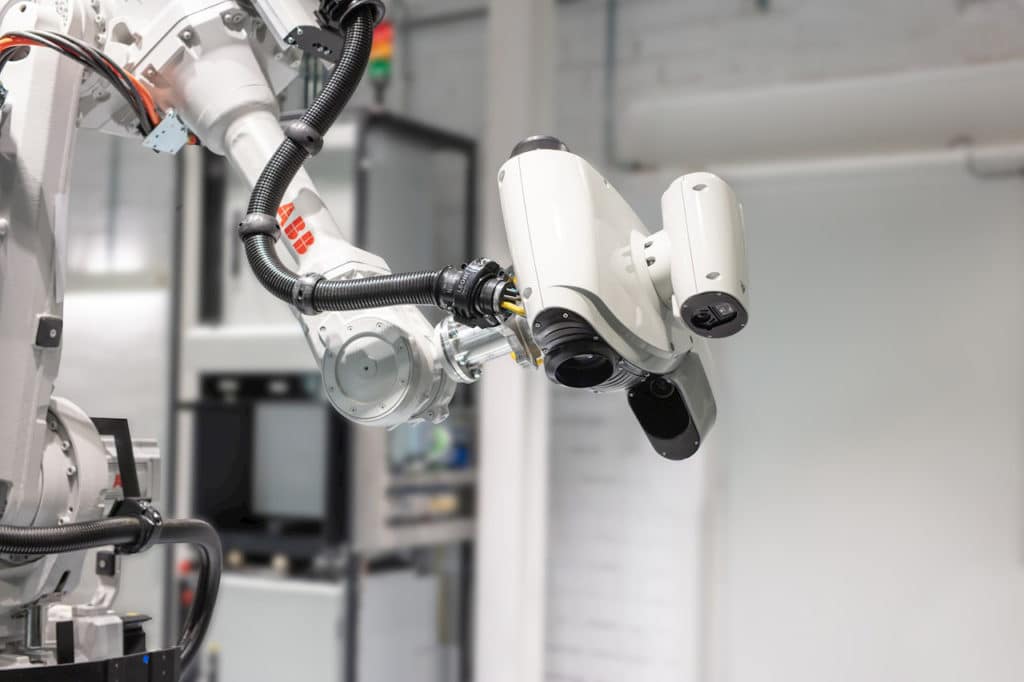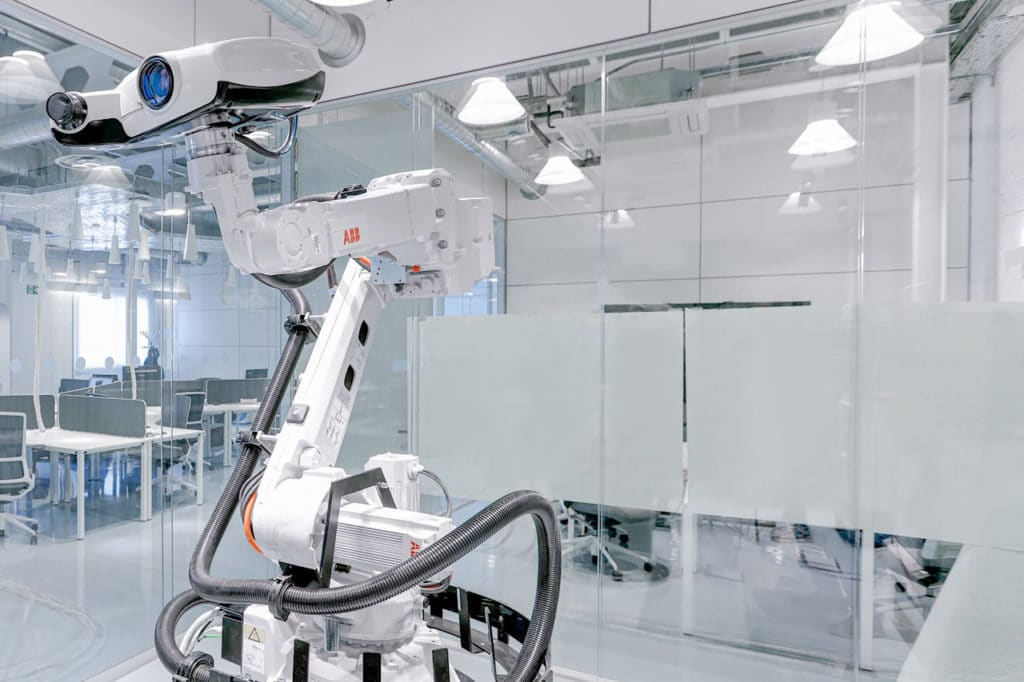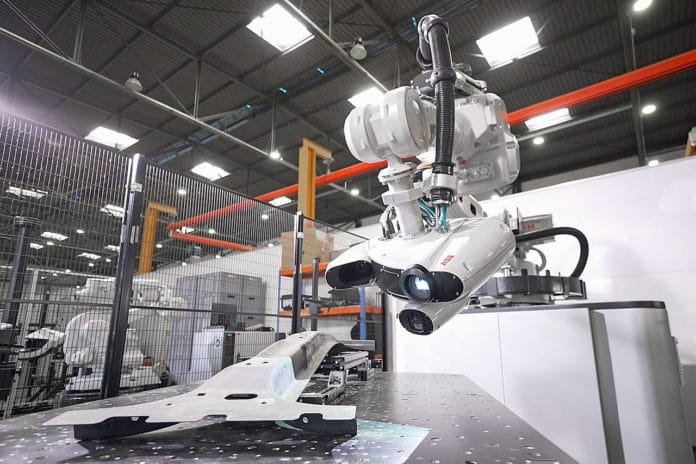The new 3D Quality Inspection (3DQI) robotic cell joins ABB’s FlexArc robotic welding cells and FlexLoader machine tool tending cells. It enriches ABB’s portfolio of intelligent and flexible solutions and is designed to accelerate production and, at the same time, improve its quality.
The system uses a 3D sensor to capture multiple images of the product at a time, through which a digital model of the analyzed part is created, which is then compared with a master CAD model. It can detect defects of less than half the width of a human hair at a pace that is dramatically faster than traditional measuring inspection tools. In addition, the system eliminates the need for time-consuming manual inspection while significantly reducing the likelihood of faults and errors.

With an accuracy of less than 100 μm, a new 3D inspection robot can even spot defects invisible to the naked eye. According to the manufacturer, the tool is capable of performing tasks up to ten times faster than traditional coordinated measuring machines (CMM). Thanks to the scalable quality control cell, it is now easier for the automotive, aerospace, heavy machinery and construction industries to accelerate production, increase quality and efficiency, and reduce waste as well.
The robotic arm can be installed on any robot with a minimum load capacity of 20 kg, which makes its installation very versatile and allows the inspection of pieces of all sizes. In addition to increasing efficiency, the system also reduces costs by minimizing the risk of product failure that could lead to potential recalls.

“The ability to accurately measure and control quality is vital to ensure that products achieve consistency, comply with standards, and meet customer expectations. Traditional testing methods are slow and capture the potential quality mistakes often too late in the process,” said Tanja Vainio, Managing Director Auto Tier One Business Line for ABB Robotics.
“Our 3DQI cell automates this process, far exceeding the capabilities of traditional inspection in speed, accuracy, and repeatability. We’ve developed and piloted our 3DQI technology in automotive applications, including automotive supplier Benteler, and the 3DQI solution has been proven to improve product quality, throughput and safety, while freeing up skilled labor to be deployed on other tasks.”
The 3DQI cell is intended for off-line measuring and quality inspection and can be customized to meet different customer needs. In addition, the system provides an analysis of processed data in real-time, and its records may contain traceability data, an item that is increasingly necessary for several sectors.
